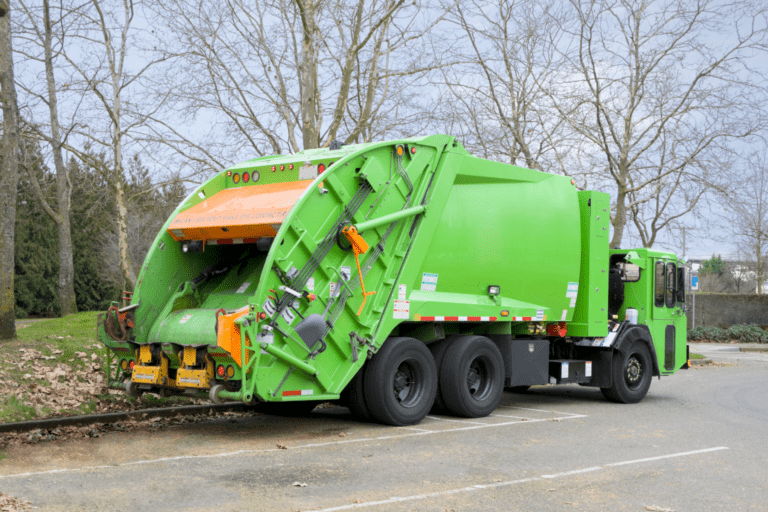Commercial vehicles in California must adhere to specific laws and regulations. These laws aim to maximize safety and ensure that the vehicles are in excellent condition to transport commercial goods. This guide looks at the vital documents that commercial vehicles in California should produce during regular inspections. Ideally, the commercial vehicle driver should always carry these documents to the enforcement personnel when requested. Here are the FMCSA document requirements for commercial vehicles in California.
Drivers Licenses for FMCSA Document Requirements and Other Related Documents
Commercial vehicles require special skills and expertise to operate them safely. Drivers for a commercial vehicle should, indeed, be well trained on all commercial vehicles or heavy trucks if they use heavy commercial vehicles. Then, after training, a driver acquires a license to show that the driver has passed the training for commercial vehicles.
While applying for a commercial driving license, the applicant should:
- Be more than 18 years old
- Have a ten-year history record check
- Provide a completed medical certificate
- Pass vision exam and submit fingerprints
- Lastly, provide social security card
During an inspection, the driver for a commercial vehicle should provide their CDL to the authorities for verification.
Registration FMCSA Document Requirements
All commercial vehicles in California need a valid registration before participating in commercial purposes. Also, the trailer registration details should be current and accurate.
During inspections or any other type of request, the driver should show evidence of current registration, including a truck registration card, cab card, log book, or a sticker displayed on the front part of the license plate.
Proof of Insurance
All cars, vans, and trucks used for commercial purposes in California should have commercial insurance. The primary aim of insurance is to cover any damages or losses if the vehicle is damaged in an accident, fire, or any other cause.
Once you pay for your CDL insurance, the insurer offers a small card or notification that acts as insurance proof. Foreign motor carriers should carry MCS-90 Form – proof of liability insurance endorsement
Special State Permits for Overweight and Oversize Loads
There are four types of oversize/overweight permits in California to include in FMCSA document requirements:
- Single trip permits – They are valid for seven days. The driver should submit a valid inspection report before paying for the license.
- Annual permits – They are available for certain commercial vehicles that pass through specified highways.
- Repetitive permits – They have 90-day validity. They are used in situations where the vehicle passes the same route repetitively.
- Variance permits – They are needed when special hauling equipment will be used.
Every commercial vehicle has its maximum weight limit. If you exceed it, be sure to obtain a special permit from the motor carrier authority for overweight or oversize to avoid legal troubles.
Hazardous Materials Shipping FMCSA Document Requirements
Some commercial vehicles transport hazardous substances such as gas, explosives, corrosives, infectious substances, or radioactive substances. These substances are a potential threat to the environment if they accidentally spill.
Therefore, such vehicles must have a special permit such as an emissions certificate for transporting hazardous substances. Pack the materials well, including proper labeling, and store them to reduce possible risks.
In addition, USDOT requires the shipper has training on handling the products and should observe the following:
- Equip the vehicle with emergency tools
- Placard the vehicle
- Load and park the vehicle well
- Have a truck safety certificate/trailer safety certificate
Fuel Tax Limits
Interstate commercial vehicles that operate in California should have any of the following FMCSA document requirements:
- California Fuel Trip Permit (CFTP)
- International Fuel Tax Agreement – IFTA certificate
- International Fuel Tax Agreement (IFTA) License
These permits require all commercial vehicle shippers to keep precise and accurate fuel usage records. The fuel tax license is not mandatory during each inspection, but it should be presented if requested.
Hours of Service Records
‘Hours of Service’ refers to the maximum amount of time that a commercial driver is required to be on duty. Commercial drivers should have this permit which indicates the hours they should be in service and the period they should rest. In California, commercial drivers must remain on duty for a maximum of 14 consecutive hours, assuming that they rested for 10 hours. Out of those 14 hours, they should be behind the wheel for 11 hours.
Safety is the primary reason commercial vehicles should have the hours of service records permit. Therefore, every commercial driver should maintain and present the permit when requested.
Evidence of Financial Stability
Every commercial driver in California should be financially able to offer financial protection to anyone injured, irrespective of the person at fault. Display any of the below identifiers for commercial vehicles as evidence of financial stability:
- Valid MX or MC number givens by Federal Motor Carrier Safety Administration (FMCSA)
- CAS number provided by the CHP. The name of the CHP should match the logo or name displayed on the commercial vehicle
- A valid PSC or TCP issued by the California Public Utilities Commission (CPUC)
Foreign domiciled carriers (Canadian and Mexican) are also expected to offer proof of payment, such as MCS 82 and MCS 90. The proof should be maintained in every vehicle that operates in the United States.
Bills/Invoices Showing Origin and Content of Agricultural Products

Commercial vehicles carrying/shipping agricultural products should produce bill/invoice documents for the products. The requirement increases safety and reduces theft. The person shipping the products should also have a bill of lading and prove that they bought the products from a legitimate store or farmer and are legally shipping them to the mentioned destination.
Proof of Sales Tax Payment If Applicable
When you buy a commercial vehicle in California, you must pay 7.5% state sales tax irrespective of the type of vehicle you buy. Of this, 6% goes to the state, and the remaining 1.25% goes to county and city funds.
If you have a commercial vehicle in California and have paid your sales tax, you should have sales tax documents. During the regular DOT inspection, the enforcement personnel might want to view them.
Comply With the FMCSA Document Requirements for Commercial Vehicles in California
Failure to comply with the above document requirements can result in legal issues. Be sure to equip yourself with each document when shipping commercial goods to remain compliant, and have a smoother time during inspections.
Paper inspection sheets can be tiresome to use and carry around. Whip Around is an intuitive and easy-to-use mobile app for commercial vehicle inspections. Join thousands of fleets using Whip Around today to facilitate the inspection process, save time and improve efficiency. Book a demo or contact us for quick assistance and guidance.









